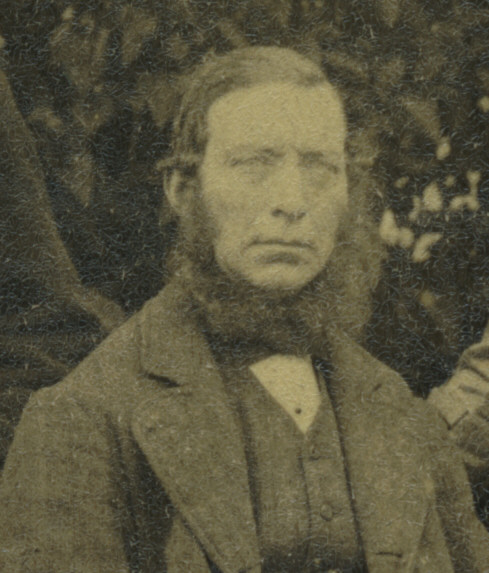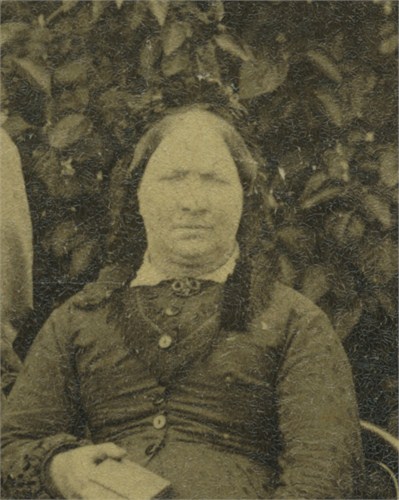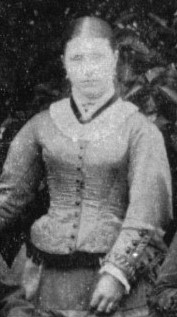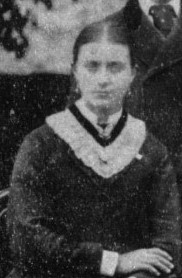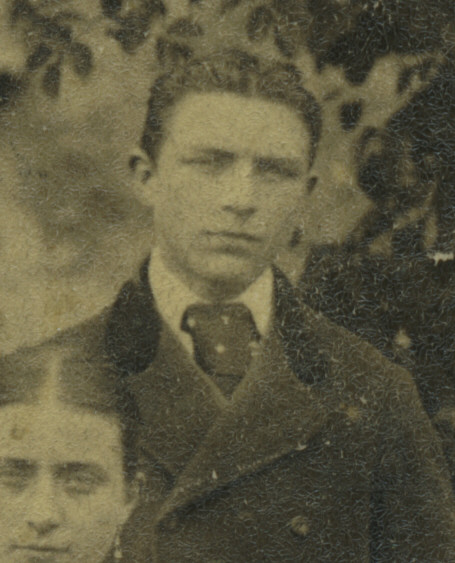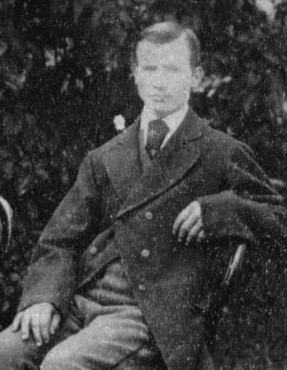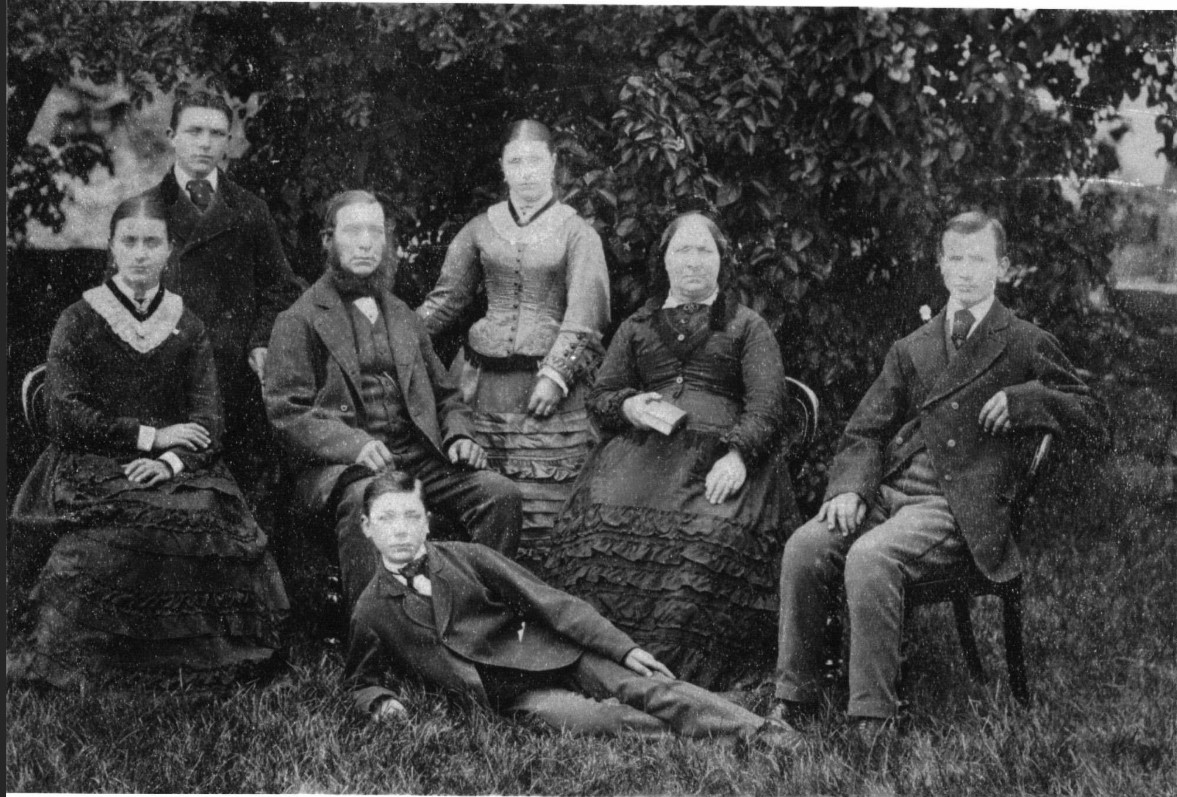Introduction
Paul Russ was a farm labourer’s son who achieved modest success in life as an innkeeper and later as a dairyman. As a teenager, he received a severe punishment for a minor crime. In his late twenties, he moved to Yeovil, where he kept an inn. In 1856, he married the widow of a Royal Marine sergeant who had three children. After their marriage, Paul ran a dairy at Hardington for several years before moving to Othery. Following the death of his wife in 1882, he moved to Aller, where he remarried in 1886. While in Aller, he took part in various religious and cultural events, including playing the clarinet and leading a brass band. Two of these events suggest he was a Congregationalist, although he may have been a Bible Christian earlier. He died in 1893.
Early life
Paul was born at Martock in 1829, the first of eight children born to Silvanus and Mary Russ.[1] His father was a farm labourer. The family may have been religious, as evidenced by Paul’s name and the names of his brothers, Absalom and Elam.
By March 1845, Silvanus and his family had moved to Tintinhull. In that year, when Paul was only fifteen, he was sentenced to three weeks in prison for stealing one pint of cider.[2] This experience would have been harsh and brutal.
In June 1849, when Paul was about twenty years old, his seven-year-old brother Silvanus died.[3]
By March 1851, Paul was working as a farm labourer at Long Sutton for a dairyman who rented 31 cows.
Life at Yeovil
In the early 1850s, Paul moved to Yeovil, where he kept an inn located in Ilchester Road. While living there, he met Elizabeth Higdon, a widow ten years his senior, with three children.
Elizabeth had an interesting past. She was born at Thorne Coffin in about 1819 to John and Charity White, her father being a carpenter. At the age of 25, she had an illegitimate daughter, Sarah Ann Beaton. The following year, she married Valentine Higdon, a corporal who later became a sergeant in the Royal Marines. Together, they had two children: John George and Emma Jane, the latter born in Plymouth. Valentine died between 1852 and 1855, possibly during the Crimean War.
On 21 January 1856, Paul and Elizabeth married at Yeovil parish church. They had two children during their time in Yeovil: Mary Hannah on 24 November 1856 and Elizabeth Alice on 6 June 1858.[4] Both daughters were baptised at St John’s Church; Paul recorded his occupation as innkeeper for Mary and as dairyman for Elizabeth.
Life at Hardington
Paul decided to continue his dairying in a village five miles outside of the town. Between the baptism of their daughter Elizabeth on July 4, 1858, and the birth of their son Paul Sylvanus in October 1860, Paul and his family moved to Bridge Close Farm in Hardington, where, in April 1861, he was a dairyman with 24 cows.
In April 1861, their household consisted of Paul, Elizabeth, Sarah White, Emma Higdon, three children of their own and Paul’s mother, Mary. Elizabeth’s son, George Higdon, was living with his uncle at Yeovil Marsh. Their son, William, was born in 1862, followed by another son, George, two years later.
Paul’s stepson, John Higdon, was one of the four young men accused of attacking the nineteen-year-old Charlotte Frampton on the evening of Sunday, 15 February 1863, after leaving a Bible Christian meeting at Prospect Farm.[5] On 4 March 1863, they appeared at Yeovil Petty Sessions, facing charges of indecently assaulting Charlotte. All four defendants pleaded “Not guilty.” After hearing the case, the magistrates found the evidence against John and another young man insufficient and dismissed the charges. Their leniency towards John may have been influenced by his age, as he was the youngest of the four at just sixteen years old.
The family was still at Bridge Close in December 1864 but had gone by March 1871.
Life at Othery
By March 1871, the family had moved to Othery, where Paul continued to work as a dairyman. Sarah White had married two years earlier, but the other six children remained at home. Over the next ten years, the three daughters married and left home, while the three sons stayed.
On 22 December 1875, Elizabeth’s son, John George Higdon, died from heart disease and dropsy at the age of 29, leaving behind a widow and four young children.[6] The 1881 census shows the youngest child living with Paul and Elizabeth.
Elizabeth’s death
Elizabeth died on 8 May 1882, at the age of 62.
In 1885, Paul gave up his farm at Othery. The farm sale held on 27 January included 24 store pigs, two three-year-old heifers, and dairy utensils.[7]
Life at Aller
In 1886, Paul married a widow named Elizabeth Davis, who had been a farm labourer’s wife. After the death of her first husband in 1864, she raised their son, John, on her own.
After their marriage, Paul made or remade his will on 1 May 1886. This will included a legacy to his son George, who was in the USA at the time. George, however, returned to Somerset by 1895.
While living at Aller, Paul led a brass band and actively participated in various religious and cultural events. On 2 October 1889, he played the clarinet at a celebration to mark the first anniversary of the opening of the Aller Congregational Chapel.[8] On 17 January 1890, he led the Othery brass band in playing music at a party for school children.[9] On 19 August 1890, he lent a field for a temperance fete at Aller.[10] Furthermore, on 26 November 1890, he conducted a temperance choir at Othery Congregational Chapel.[11]
By April 1891, Paul was a farmer living at South Street, Aller.
Death
Paul died at Aller on 13 May 1893, at the age of 63, leaving effects valued at £356-0s-11d. He left his wife his household effects and £150. He intended to distribute the rest of his estate between his two stepchildren, the widow of John Higdon and his five children. However, because his pecuniary legacies exceeded the value of his estate, his two daughters, Mary and Elizabeth, might not have received anything.[12]
Children
Paul and Elizabeth had three sons and two daughters. Their son, Paul Sylvanus, emigrated to Canada in 1907.
Additionally, Elizabeth had a son and a daughter from her first marriage, as well as a daughter born a year before her first marriage.
The will of Paul Russ
Sole executor: Albert Bollen.
To my dear wife Elizabeth Russ (formerly Elizabeth Davis, widow): my household effects and £150.
To Albert Bollen of Yeovil, solicitor: the remainder of my estate to convert to money and pay the following pecuniary legacies:
To Sarah Ann Lovibond (formerly Sarah Ann White, but now the wife of James Lovibond of Othery, labourer): £80.
To Ann Higdon of Yeovil, the widow of my late stepson, John George Higdon: £50.
To my sons, Paul Silvanus Russ and William Russ of Othery: £50 each.
To my son, George Russ, of the USA: £100.
The remainder to be divided into eight equal shares.
Sarah Ann Lovibond 1/8
Ann Higdon 1/8
My stepdaughter, Emma Jane Winslade, wife of William Winslade of Othery, Farmer: 1/8
My daughter, Mary Ann Goodson, wife of James Goodson of Othery, Farmer: 1/8
My daughter, Elizabeth Alice Darby, wife of Wm Hy Darby of Middlezoy, Farmer: 1/8
Paul Silvanus Russ:1/8
William Russ: 1/8
George Russ: 1/8
References
[1] Paul’s bother, George, was serving as a private with the 8th Regiment when he married in Manchester in 1871.
[2] Sherborne Mercury, 5 April 1845, p.3.
[3] Another brother, also named Silvanus, died at the age of two when Paul was about five years old.
[4] Birth certificate of Mary Hannah Russ (recorded as Maryann Russ); 1939 Register.
[5] Western Gazette 7 March 1863 p. 2; Sherborne Mercury 10 March 1863 p. 2.
[6] Death certificate of John George Higdon.
[7] West Somerset Free Press, 24 January 1885, p.1.
[8] Langport & Somerton Herald, 5 October 1889, p.4.
[9] Langport & Somerton Herald, 25 January 1890, p.5
[10] Langport & Somerton Herald, 23 August 1890, p.5
[11] Langport & Somerton Herald, 29 November 1890, p.5.
[12] The will of Paul Russ, dated 1 May 1886, proved in London on 20 October 1893.
